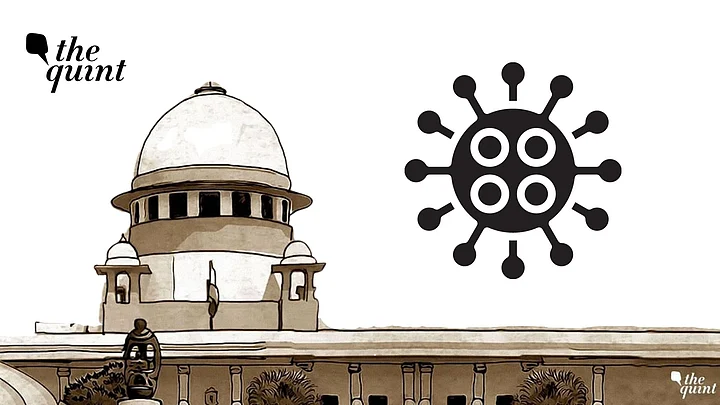The Supreme Court on Monday, 31 May, rapped the Centre for its policy of dual pricing for COVID-19 vaccination and questioned the rationale behind letting states and even civic bodies compete with each other for getting vaccines from private manufactures via global tenders.
The apex court said that while rich states like Maharashtra might been able to procure vaccines via this route, a poorer state like Nagaland might not have been able to do so.
Slamming the central government, the court said, “You can’t just say that you’re the Centre and you know what’s right. We have a strong arm to come down on this.”
The observations were made by a three-judge Bench, comprising Justices DY Chandrachud, L Nageswara Rao, and S Ravindra Bhat, while hearing the suo moto case on the COVID-19 crisis.
“We are not changing the policy. We are asking you to please wake up and smell the coffee and see what's happening across the country,” Justice Chandrachud said, as quoted by LiveLaw.
Solicitor General Tushar Mehta, representing the Centre said that it is on track to vaccinate all by December.
‘Why Are States Left to Fend for Themselves?’
Questioning why the states were being made to compete with each other, the court observed that there are some municipal corporations, like Mumbai, which have more budget than some of the other states and will be able to procure vaccines better in a global market.
While Mehta tried to argue that such individual tenders might be “academic” as most manufacturers have decided to deal only with the Centre, Chandrachud pointed out the BMC has already received bids for Sputnik.
“There is a vital issue. Article 1 of the Constitution says that India, that is Bharat is a, Union of States. When the Constitution says that, then we follow the federal rule. Then Government of India has to procure the vaccines and distribute it. Individual states cannot be left in the lurch,” Chandrachud said, as quoted by LiveLaw.
The court also questioned non-uniformity in vaccines being procured by states from manufacturers.
“Why do the states have to pay a higher price? You have to ensure that vaccines are available at the same price across the nation. You can't have a different price at the Centre and different at the states,” Justice Chandrachud said.
SC Questions CoWIN Accessibility, Different Rules for 18-44 Age Group
Questioning the accessibility and functioning of the CoWIN portal, the apex court questioned how people in rural areas and the technologically challenged masses of India were getting slots.
“Even in the villages, they have to get registered at a common Centre. Is that really practical?” Chandrachud asked.
“Can we say that 50 percent of the population between 18 to 45 will be able to afford the vaccines? Not at all. How do we look at the marginalised and those who can’t provide for themselves? These are areas we have to look at critically,” LiveLaw quoted Chandrachud as saying.
The court also questioned the rationale behind not allowing walk-in registrations for the 18-44 age group, as “digital literacy in India is far from being perfect".
The court asked why free vaccination was not a choice for the 18-44 age group, if it was for the 45+ category.
“This is a real fear amongst the people. I have gotten distress calls from people across the country that they're not getting slots. They're all gone within seconds,” Justice Bhat said.
The hearing resumed on Monday after it was deferred on 13 May as Justice Chandrachud had tested positive for COVID-19.
(At The Quint, we question everything. Play an active role in shaping our journalism by becoming a member today.)
